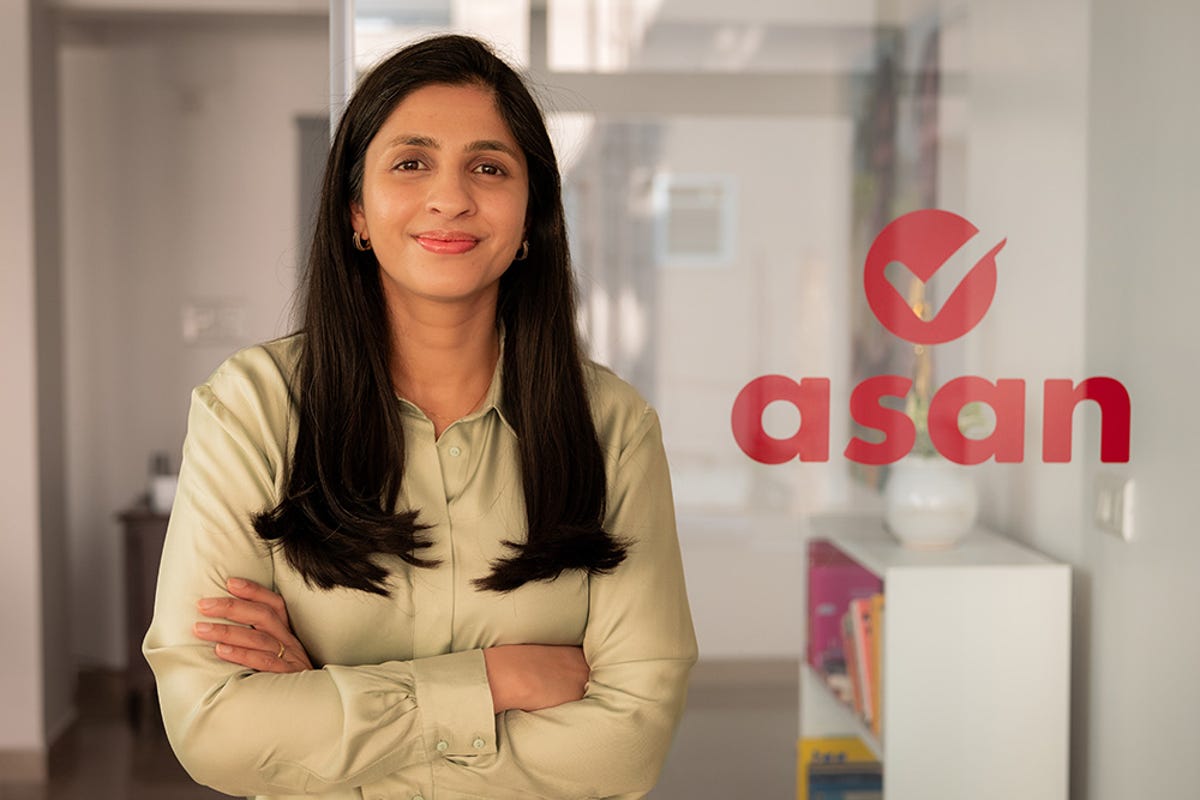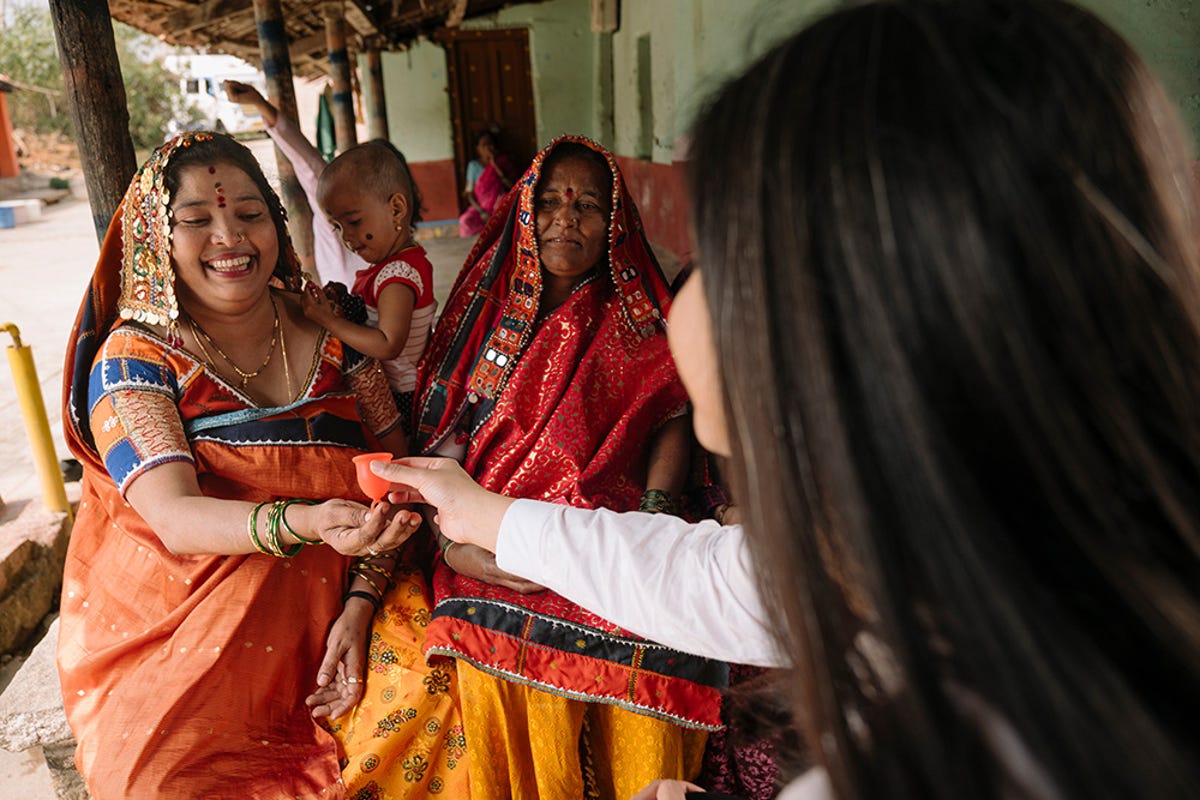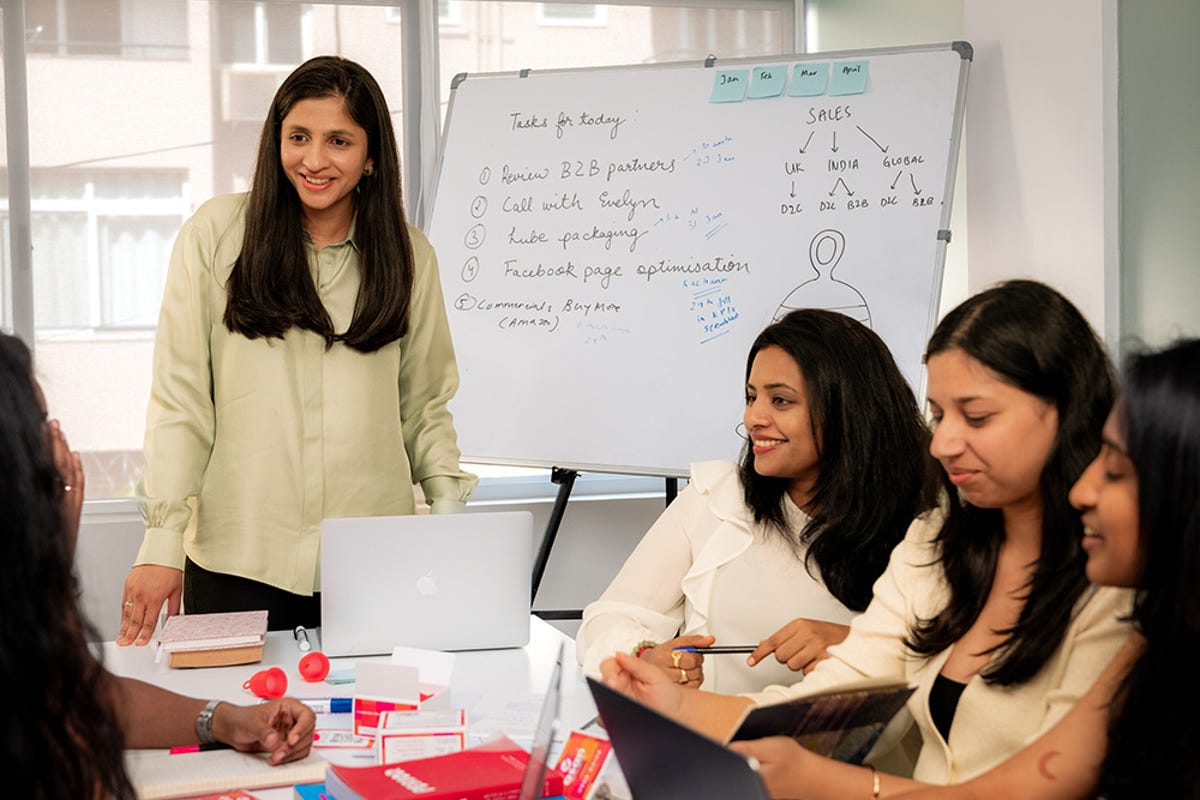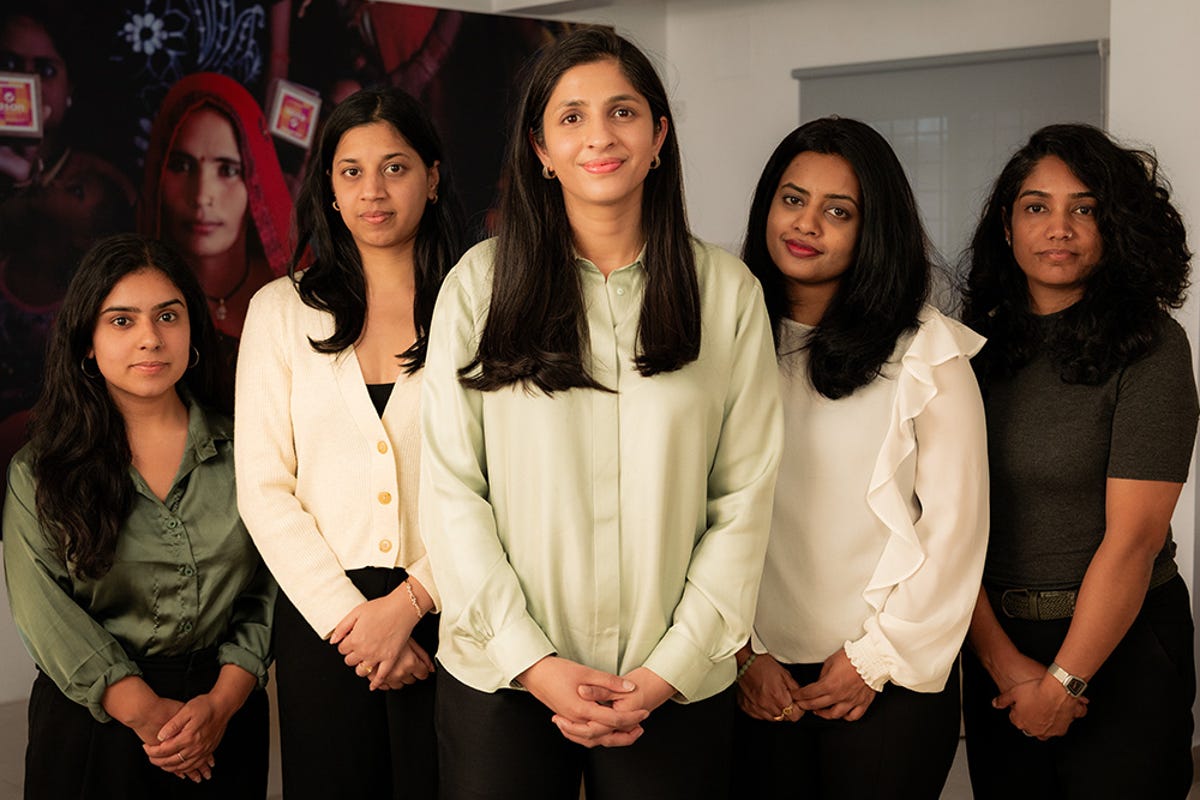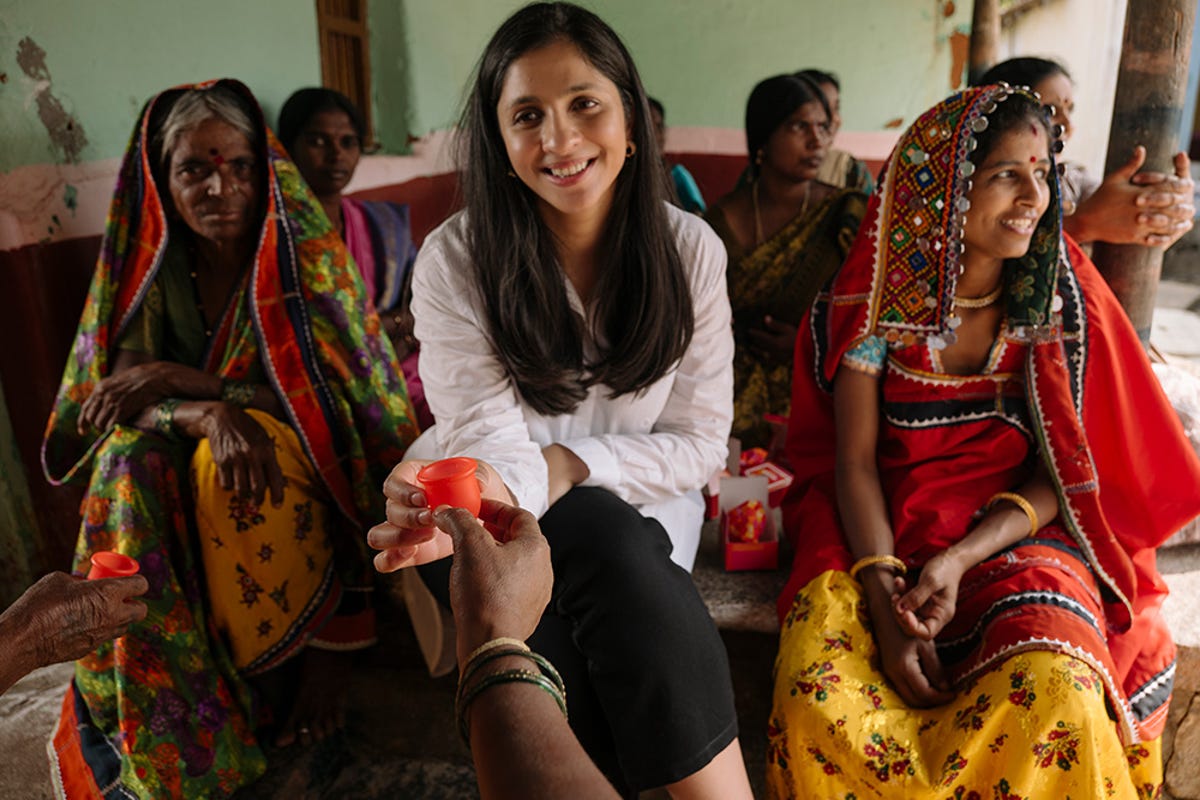Fellow Portrait
Ira Guha
Asan
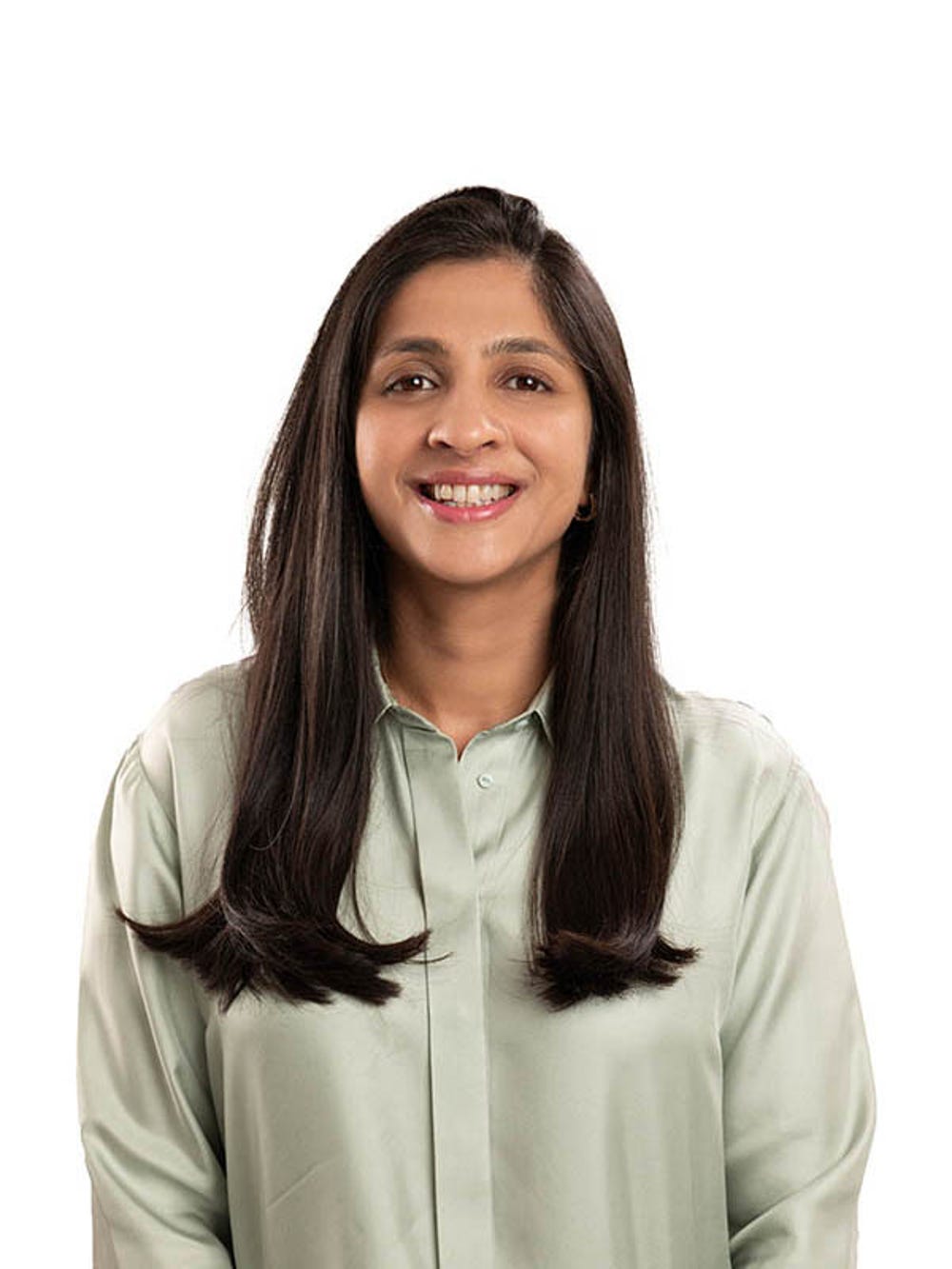
Asan developed an easy-to-insert reusable menstrual cup to address period poverty and reduce solid waste pollution in India.
South Asia and Central Asia
India
Fellow
2024
Updated March 2024
Access to safe period care products is a worldwide problem
Period poverty refers to the challenge of obtaining affordable menstrual products such as pads, tampons, and pain medication. Worldwide, roughly 1.6 billion women and girls cannot afford access to safe period care, with economic and social as well as personal consequences.
In India alone, women lose dozens of work days because of their periods, contributing to US$87 billion in annual GDP losses. While India’s use of disposable sanitary pads has increased rapidly, this product contributes to a massive waste crisis in the country, where more than 12.3 billion sanitary pads go to landfill annually.
Asan means ‘easy’ in several languages. The Asan Cup is effective and easy to use. You can wear it for three times longer than a tampon or pad. And the number one piece of feedback we get is women saying ‘it's like I'm not on my period anymore'.

An easy-to-use menstrual cup combats period poverty
Ira Guha designed and patented the Asan Cup as a graduate student at Harvard University, working with engineers at the Harvard Innovation Lab. “The great thing about menstrual cups is that they're reusable for ten years,” she says—a great solution to both period poverty and the waste problem. “But most menstrual cups can be hard to insert and remove. I wanted to improve the design of the product to make it more user friendly.” The Asan Cup’s small ring and other features make it easy to use.
After bringing sample cups to her community in South India, Ira was inundated with requests from women who wanted to try it. She took dozens on each return trip and eventually moved to India. She began working with a charity in Kanakapura and found that with the right behavioral changes through education, women in villages adopted the Asan Cup at high rates. “You can get every woman and girl of the village to use it, and they can go to school, they can go to work. There's a huge reduction in anxiety.”
One Asan Cup costs approximately US$25—equivalent to the cost of pads for a few months—and lasts for ten years. Unfortunately, villagers could not afford the Asan Cup even if sold at cost, so Ira converted the business to a for-profit that now donates one cup for each one purchased.
The Asan cup enables women to gain an average of two extra days of productive work every single period, which adds up over a ten-year span to something like 260 days per woman or girl. That is the story of economic empowerment.
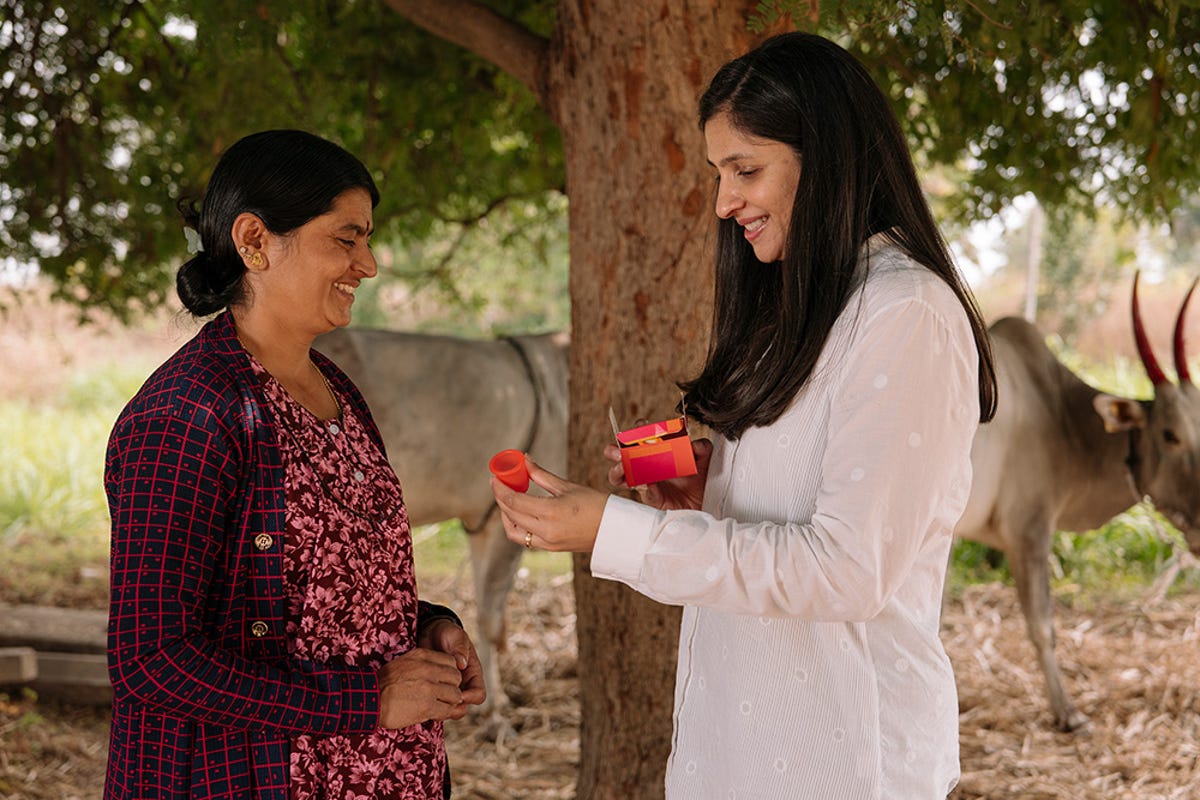
Women and girls have money for other essentials—and less anxiety
Asan has helped women in 20,000 Indian households regain an average of two work days each month, resulting in money now available for education, textbooks, and medications. And the cup is eco friendly; one cup avoids the waste of 2,500 pads or tampons. Worldwide, it has averted the equivalent of more than 100,000 tons of plastic waste from landfills.
“The final impact is harder to quantify,” Ira says. “So many women who use our cup will tell you they used to spend the whole month dreading their period—with good reason. A girl might have to carry soiled pads home in her bag because there was no dustbin in her school. These situations are upsetting and detrimental to mental health. With the Asan Cup, that stress and worry is gone and there’s an immense improvement in mental wellbeing.”
Periods are universal and everyone deserves access to the highest quality period care. We don't want to stop until every single woman and girl, no matter their income, no matter where they're from, has access to safe period care.
